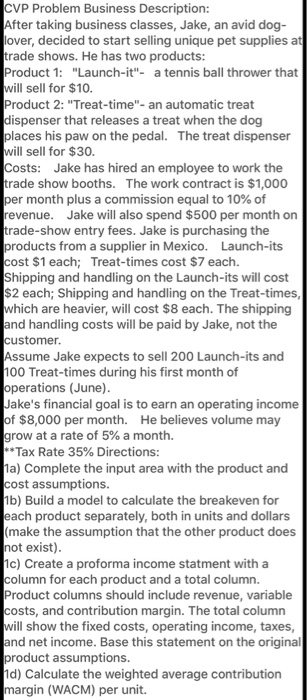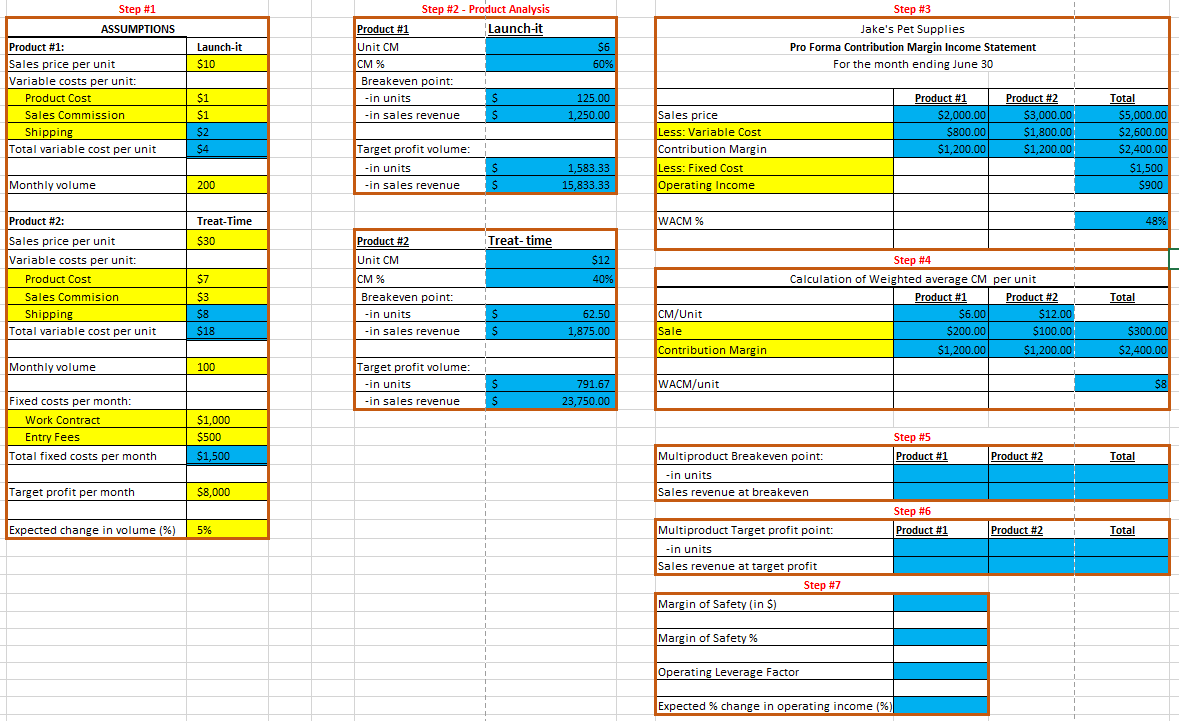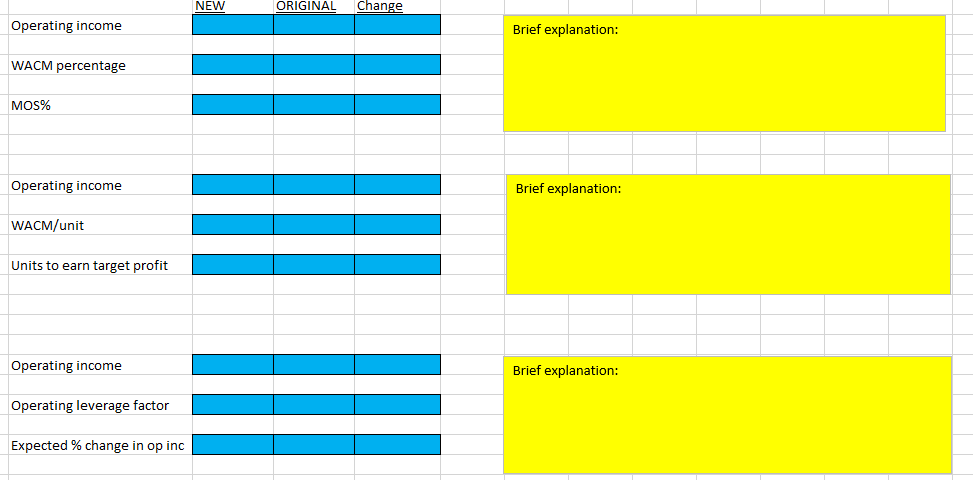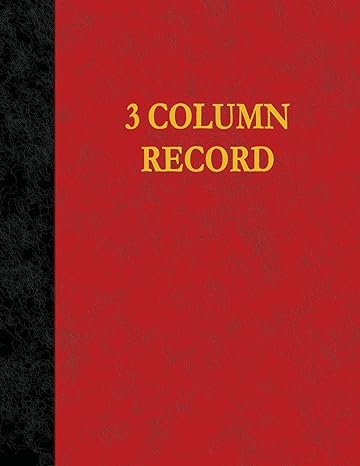Answered step by step
Verified Expert Solution
Question
1 Approved Answer
which one CVP Problem Business Description: After taking business classes, Jake, an avid dog- lover, decided to start selling unique pet supplies at| trade shows.



which one
CVP Problem Business Description: After taking business classes, Jake, an avid dog- lover, decided to start selling unique pet supplies at| trade shows. He has two products: Product 1: "Launch-it"- a tennis ball thrower that will sell for $10. Product 2: "Treat-time"- an automatic treat dispenser that releases a treat when the dog places his paw on the pedal. The treat dispenser will sell for $30. Costs: Jake has hired an employee to work the trade show booths. The work contract is $1,000 per month plus a commission equal to 10% of revenue. Jake will also spend $500 per month on trade-show entry fees. Jake is purchasing the products from a supplier in Mexico. Launch-its cost $1 each; Treat-times cost $7 each. Shipping and handling on the Launch-its will cost $2 each; Shipping and handling on the Treat-times, which are heavier, will cost $8 each. The shipping and handling costs will be paid by Jake, not the customer. Assume Jake expects to sell 200 Launch-its and 100 Treat-times during his first month of operations (June). Jake's financial goal is to earn an operating income of $8,000 per month. He believes volume may grow at a rate of 5% a month. **Tax Rate 35% Directions: 1a) Complete the input area with the product and cost assumptions. 1b) Build a model to calculate the breakeven for each product separately, both in units and dollars (make the assumption that the other product does not exist). 1c) Create a proforma income statment with a column for each product and a total column. Product columns should include revenue, variable costs, and contribution margin. The total column will show the fixed costs, operating income, taxes, and net income. Base this statement on the original product assumptions. 1d) Calculate the weighted average contribution margin (WACM) per unit. Step #1 Step #3 Jake's Pet Supplies Pro Forma Contribution Margin Income Statement For the month ending June 30 $6 Launch-it $10 Step #2 - Product Analysis Product #1 Launch-it Unit CM CM% Breakeven point: i -in units -in sales revenue ASSUMPTIONS Product #1: Sales price per unit Variable costs per unit: Product Cost Sales Commission Shipping Total variable cost per unit 60% 125.00 1,250.00 Product # 1 1 $2,000.00 $800.00 $1,200.00 Sales price Less: Variable Cost Contribution Margin Less: Fixed Cost Operating Income Product #2 $3,000.00 $1,800.00 $1,200.00 Total $5,000.00 $2,600.00 $2,400.00 $1,500 $900 Target profit volume: -in units in sales revenue $ $ 1,583.33 15,833.33 Monthly volume 200 WACM % 48% Treat-Time $30 Treat-time Product #2: Sales price per unit Variable costs per unit: Product Cost Sales Commision Shipping Total variable cost per unit $12 40% $7 Product #2 Unit CM CM % Breakeven point: -in units -in sales revenue $3 Total $ $ Step #4 Calculation of Weighted average CM per unit Product #1 Product #2 $6.00 $12.00 $200.00 $100.00 $1,200.00 $1,200.00 62.50 1,875.00 $18 CM/Unit Sale Contribution Margin $300.00 $2,400.00 Monthly volume 100 Target profit volume: -in units -in sales revenue WACM/unit $ $ 791.67 23.750,00 Fixed costs per month: Work Contract Entry Fees Total fixed costs per month $1,000 $500 $1,500 Step #5 Product #1 Product #2 Total Multiproduct Breakeven point: -in units Sales revenue at breakeven Target profit per month $8,000 Step #6 Product #1 Expected change in volume (%) 5% Product #2 Total Multiproduct Target profit point: -in units Sales revenue at target profit Step #7 Margin of Safety (in $) Margin of Safety % Operating Leverage Factor Expected % change in operating income (%) NEW ORIGINAL change Operating income Brief explanation: WACM percentage MOS% Operating income Brief explanation: WACM/unit Units to earn target profit Operating income Brief explanation: Operating leverage factor Expected % change in op inc CVP Problem Business Description: After taking business classes, Jake, an avid dog- lover, decided to start selling unique pet supplies at| trade shows. He has two products: Product 1: "Launch-it"- a tennis ball thrower that will sell for $10. Product 2: "Treat-time"- an automatic treat dispenser that releases a treat when the dog places his paw on the pedal. The treat dispenser will sell for $30. Costs: Jake has hired an employee to work the trade show booths. The work contract is $1,000 per month plus a commission equal to 10% of revenue. Jake will also spend $500 per month on trade-show entry fees. Jake is purchasing the products from a supplier in Mexico. Launch-its cost $1 each; Treat-times cost $7 each. Shipping and handling on the Launch-its will cost $2 each; Shipping and handling on the Treat-times, which are heavier, will cost $8 each. The shipping and handling costs will be paid by Jake, not the customer. Assume Jake expects to sell 200 Launch-its and 100 Treat-times during his first month of operations (June). Jake's financial goal is to earn an operating income of $8,000 per month. He believes volume may grow at a rate of 5% a month. **Tax Rate 35% Directions: 1a) Complete the input area with the product and cost assumptions. 1b) Build a model to calculate the breakeven for each product separately, both in units and dollars (make the assumption that the other product does not exist). 1c) Create a proforma income statment with a column for each product and a total column. Product columns should include revenue, variable costs, and contribution margin. The total column will show the fixed costs, operating income, taxes, and net income. Base this statement on the original product assumptions. 1d) Calculate the weighted average contribution margin (WACM) per unit. Step #1 Step #3 Jake's Pet Supplies Pro Forma Contribution Margin Income Statement For the month ending June 30 $6 Launch-it $10 Step #2 - Product Analysis Product #1 Launch-it Unit CM CM% Breakeven point: i -in units -in sales revenue ASSUMPTIONS Product #1: Sales price per unit Variable costs per unit: Product Cost Sales Commission Shipping Total variable cost per unit 60% 125.00 1,250.00 Product # 1 1 $2,000.00 $800.00 $1,200.00 Sales price Less: Variable Cost Contribution Margin Less: Fixed Cost Operating Income Product #2 $3,000.00 $1,800.00 $1,200.00 Total $5,000.00 $2,600.00 $2,400.00 $1,500 $900 Target profit volume: -in units in sales revenue $ $ 1,583.33 15,833.33 Monthly volume 200 WACM % 48% Treat-Time $30 Treat-time Product #2: Sales price per unit Variable costs per unit: Product Cost Sales Commision Shipping Total variable cost per unit $12 40% $7 Product #2 Unit CM CM % Breakeven point: -in units -in sales revenue $3 Total $ $ Step #4 Calculation of Weighted average CM per unit Product #1 Product #2 $6.00 $12.00 $200.00 $100.00 $1,200.00 $1,200.00 62.50 1,875.00 $18 CM/Unit Sale Contribution Margin $300.00 $2,400.00 Monthly volume 100 Target profit volume: -in units -in sales revenue WACM/unit $ $ 791.67 23.750,00 Fixed costs per month: Work Contract Entry Fees Total fixed costs per month $1,000 $500 $1,500 Step #5 Product #1 Product #2 Total Multiproduct Breakeven point: -in units Sales revenue at breakeven Target profit per month $8,000 Step #6 Product #1 Expected change in volume (%) 5% Product #2 Total Multiproduct Target profit point: -in units Sales revenue at target profit Step #7 Margin of Safety (in $) Margin of Safety % Operating Leverage Factor Expected % change in operating income (%) NEW ORIGINAL change Operating income Brief explanation: WACM percentage MOS% Operating income Brief explanation: WACM/unit Units to earn target profit Operating income Brief explanation: Operating leverage factor Expected % change in op inc Step by Step Solution
There are 3 Steps involved in it
Step: 1

Get Instant Access to Expert-Tailored Solutions
See step-by-step solutions with expert insights and AI powered tools for academic success
Step: 2

Step: 3

Ace Your Homework with AI
Get the answers you need in no time with our AI-driven, step-by-step assistance
Get Started


